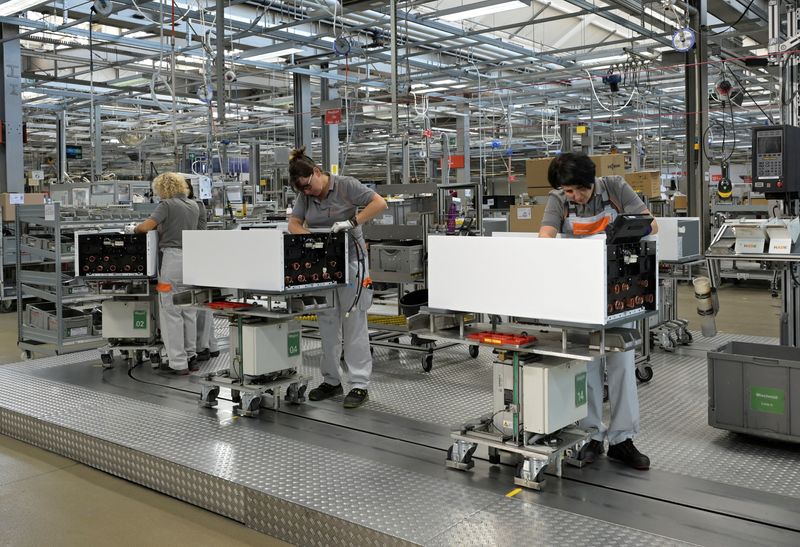BERLIN (Reuters) - Germany's manufacturing sector contracted at the fastest rate in almost three years in April, although firms increased output slightly as their supply chain problems eased, a survey showed on Tuesday.
S&P Global (NYSE:SPGI)'s final Purchasing Managers' Index (PMI) for manufacturing, which accounts for about a fifth of Germany's economy, fell by 0.2 points on the month to 44.5, the third consecutive monthly decline and the lowest reading since May 2020.
A flash estimate had pointed to an April reading of 44.0.
The survey's indicator for output again signalled growth last month, edging up by 0.2 points from March to 50.7, but new orders were seen falling, albeit at a slower rate.
"The weakness in demand ... does not mean at all that a crash in production is imminent," said Cyrus de la Rubia, chief economist at Hamburg Commercial Bank AG.

He pointed to data from the German statistics office showing that order books were still sufficient for seven to eight months' worth of production.
"The weakness in demand coupled with a high order backlog also has something good for companies in the short term. This is because, as measured by the PMI price indices, firms seem to be able to increase their profit margins," de la Rubia said.